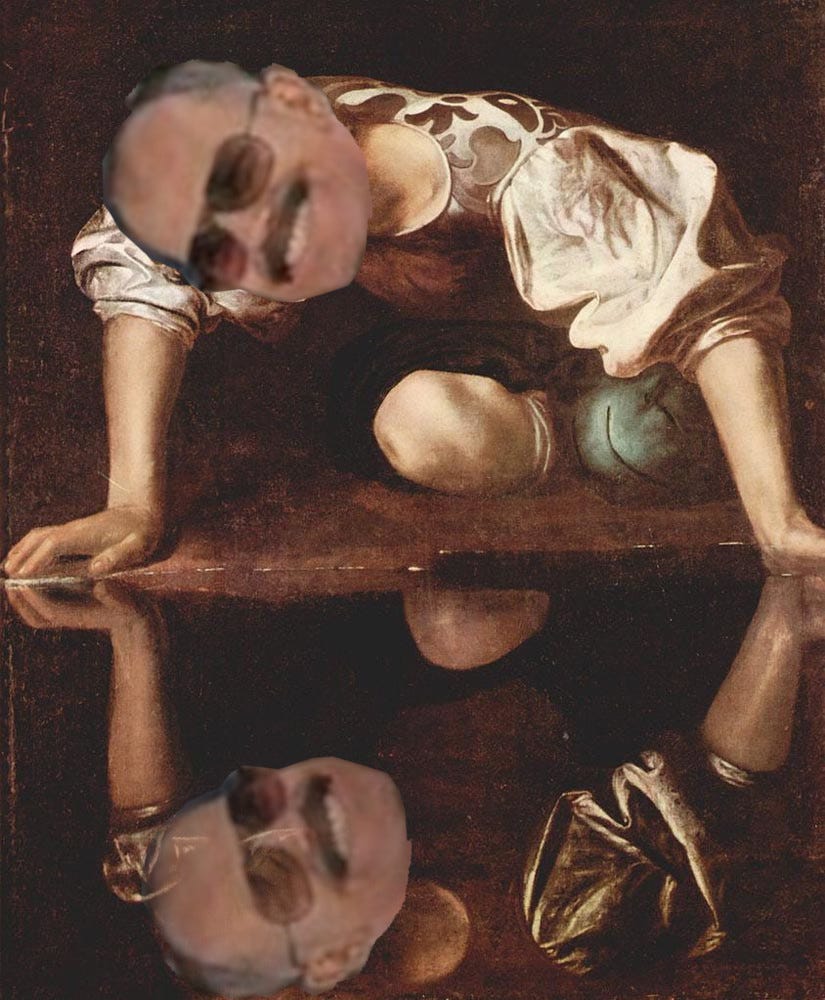Note: I wanted to get the portrait published as soon as possible so I can move on to a full development of the metaphor in the context of so-called identity politics. I’ll likely return to this post and update it with content and references. If you need a reference for a specific passage, leave a comment or email.
Today when you read about narcissism, you’re likely to encounter high-level surveys of the condition’s main characteristics: grandiosity, extreme self-centeredness, a need for external approval, and Machiavellianism. Less frequently will you encounter the more vulnerable traits of narcissism such as low self-esteem, introversion, and emotional fragility. With the following portrait I Intend to go beyond these superficial symptomatic descriptions and expose some of the logic lurking behind narcissistic behavior.
There are many theories as to why a person develops narcissistic behavioral traits. I’ll offer a synthesis of varying traditions ranging from the classical (psychodynamic) to the more recent and rigorous empirical models. You’ll notice that I heavily rely upon psychodynamic explanations (primarily those offered by Otto Kernberg, but also Hans Kohut and even Christopher Lasch)[i], because their methods constitute a form of folk psychology which offers etiologies that are intelligible to normal people, and which normal people often find persuasive. I was surprised to discover when I began investigating narcissism that, despite the esoteric and pretentious pseudo-scientific categories, and despite Freud and others claiming to have “discovered” through science new instincts and psychological modules, the psychodynamic model hews closely to ancient folk metaphors for the human soul.
The Birth of the Narcissist
As a young boy, his attempts to have his needs met were excessively frustrated and consequently (or perhaps simply as a matter of disposition) he experienced feelings of extreme aggression toward himself and others. Such unmet needs could be as simple as hunger or as complex as the need for a parent to show empathy and mirror his emotions. His ability to meet these needs may have been thwarted either by external forces like inattentive parents or because he was genetically incapable of meeting them himself, in the latter case possibly because he could not tolerate the anxiety associated with doing so. He also may have experienced painful or traumatic interpersonal experiences, although again it is unclear whether the traumatic nature of the experiences stemmed from his genetic incapacity to tolerate anxiety.



